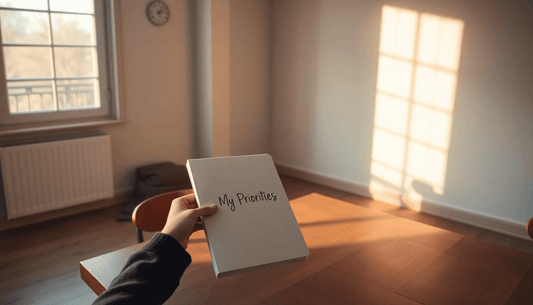
5 Self-Improvement Tips Every Teacher Should Try
As a teacher, you wear many hats throughout the day—educator, mentor, counselor, and more. The job demands can be relentless, leaving little time for self-care. However, investing in your own growth and well-being isn't a luxury—it's essential for being the best version of yourself in the classroom.
These five self-improvement tips can help you cultivate a healthier mindset, boost your productivity, and prevent burnout so you can show up fully for your students.
5. Start the Day with a Purposeful Morning Routine
Before the chaos of the school day begins, take time for yourself with a morning routine. This structured start to your day can significantly impact your mindset and energy levels.
Consider incorporating a few of these elements:
- 10-15 minutes of meditation or deep breathing
- Journaling about your goals, intentions, or gratitudes
- Light exercise, like a quick yoga flow or brisk walk
- Reading inspirational or educational content
The key is to choose activities that energize and center you, not drain your limited morning time. Experiment to find the right balance that prepares you to tackle the day ahead.
4. Set Boundaries for Work-Life Balance

As a teacher, it's all too easy to let work bleed into your personal life. But this can quickly lead to burnout if you don't set clear boundaries.
Make a conscious effort to "clock out" mentally and physically after school. This could mean turning off email notifications, avoiding work tasks in the evenings, or even leaving your lesson planning at school.
You might also try time-blocking your schedule to protect personal time. For example, block off 6-8 PM as family time, no exceptions. Prioritizing this balance will help you recharge and be more present for your students and your loved ones.
3. Invest in Continuous Learning
Teaching is a lifelong journey of growth and improvement. Make the most of it by continuously expanding your knowledge and skills.
Explore free or low-cost online courses, webinars, podcasts, and other resources to enhance teaching methods. But don't stop there—also look for opportunities to develop yourself personally. Classes on topics like mindfulness, time management, or even a new hobby can provide a welcome mental break.
Some great places to start your learning journey include Coursera, edX, and the wealth of educational podcasts available. Identify areas you'd like to improve, then find resources to support your goals.
2. Practice Reflective Teaching
After each lesson or school day, take time to reflect on what went well and what you could do differently next time. Journaling about your experiences is a powerful way to improve your teaching methods and self-awareness.
This practice of reflective teaching doesn't just help you grow professionally—it also builds emotional resilience. By acknowledging both your strengths and areas for improvement, you can approach challenges with a growth mindset rather than self-criticism.
Set aside 10-15 minutes at the end of each day to jot down your thoughts. Over time, you may notice patterns emerge that inform your teaching style and help you become a more effective educator.
1. Prioritize Physical and Mental Health
As a teacher, your physical and mental well-being directly impacts your ability to show up fully for your students. Make self-care a non-negotiable part of your daily routine.
Aim for at least 30 minutes of movement daily, whether a brisk walk, an online workout, or a few yoga poses. Staying hydrated and getting enough sleep are also crucial for maintaining your energy levels.
You can also incorporate simple mindfulness practices throughout the day, such as deep breathing exercises or short meditation breaks. Consider downloading a teacher-focused wellness app like Calm or Headspace to make this easier to implement.
Remember, you can't pour from an empty cup. Prioritizing your own health and happiness will allow you to be the best version of yourself in the classroom.
In conclusion, these five self-improvement tips can help you cultivate a healthier mindset, boost your productivity, and prevent burnout as a teacher. Start by choosing one area to focus on, then build from there. A better you means a better classroom for your students.
Professional development is key to growth. Resources like Edutopia offer actionable strategies for teachers.



